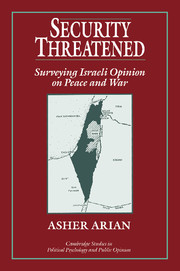5 - Politics
Published online by Cambridge University Press: 06 July 2010
Summary
ELECTIONS
Policy is not made by public opinion; it is made by politicians elected to office. If the public participates in the election of leaders, and if the mechanisms used are open and fair, then the impact of public opinion on policy is through the selection process, in determining who is to decide. In a democratic setting, a proposition supported by a substantial portion of an articulate public is likely to attract the attention of the leadership.
Policy flows from election results because the elections empower those who make policy. Elections are the beginning of the process of setting policy for the nation, not the end of the process. Obviously, the phenomenon is cyclical since policy also interacts with later voting decisions, and decision makers keep at least one eye on the election calendar and one ear open to the musings of the media and the roar of the streets.
Because decisions are specific and elections diffuse, it is usually incorrect to view elections as a referendum on a given issue. Even in Israel, with the centrality of the security issue granted, and the salience of the territories obvious, both public opinion polls and election results are very imprecise predictors of future policy. In addition to the distribution of opinion and the intensity of the opinion holders, we must know which politicians assumed the important decision-making roles, and which nonelected public servants and advisors they appointed to decision-making positions.
- Type
- Chapter
- Information
- Security ThreatenedSurveying Israeli Opinion on Peace and War, pp. 129 - 160Publisher: Cambridge University PressPrint publication year: 1995



